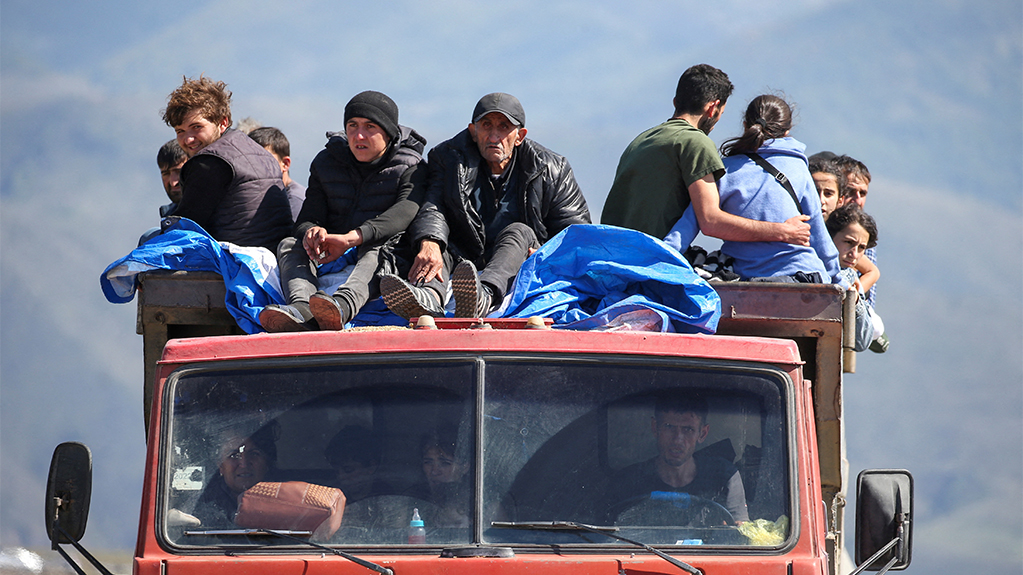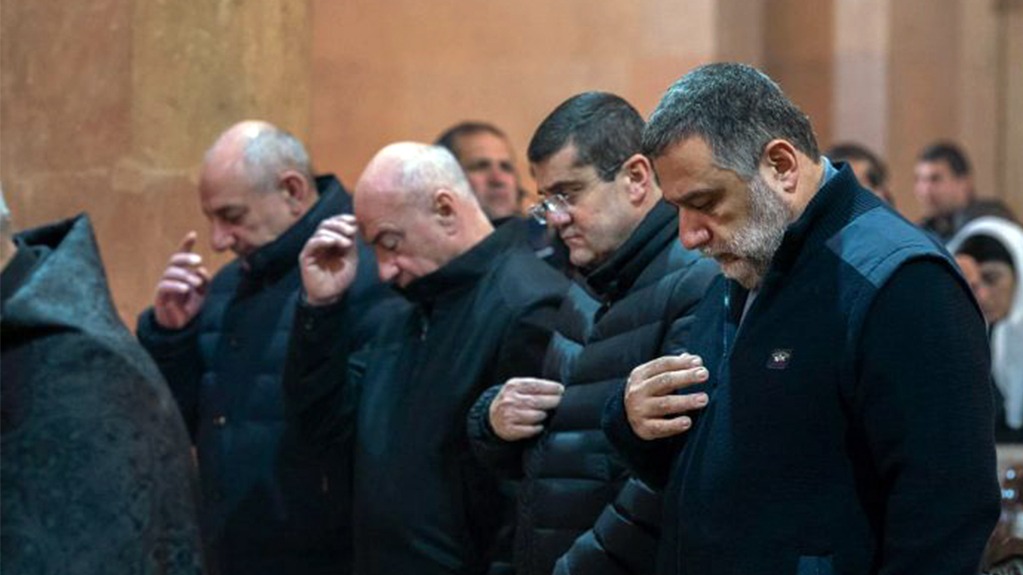According to information released by Azerbaijani media, on October 3, former de facto presidents of Nagorno-Karabakh, Arkadi Ghukasyan, Bako Sahakyan, Arayik Harutyunyan, and National Assembly Chairman Davit Ishkhanyan, were arrested. They were transferred to Baku and criminal cases have been brought against them.
News
Earlier, the Security Services of Azerbaijan arrested the former State Minister of the unrecognized Nagorno-Karabakh Republic Ruben Vardanyan, the former Minister of Foreign Affairs David Babayan, the former Commander of the Defense Army Levon Mnatsakanyan, and the former Deputy Commander of the Armed Forces Davit Manukyan.
The UN mission under the leadership of the UN Resident Coordinator in Azerbaijan concluded a one-day visit to Nagorno-Karabakh yesterday. In their statement, it is estimated that about a thousand Armenians remain in Nagorno-Karabakh.
‘’The mission is shocked by how suddenly the local population abandoned their homes and the suffering this might have caused’’

The authors of the statement also pointed out that they did not see any signs of damage or destruction of civil and agricultural infrastructure in the places they visited. According to the announcement, the UN representatives were on a one-day visit to Aghdami, Stepanakert, and Lachin corridor. According to the report, the observers' access to the villages was ‘’limited.’’
A total of 120 thousand people lived in Karabagh. Ethnic Armenians fled the region en masse and moved to Armenia following Azerbaijan’s military operation on September 19-20, when Baku declared the restoration of their sovereignty.
Armenian Special Task Force representative Edmon Marukyan criticized the work of the UN mission and emphasized that the mission legalized the crimes committed by Azerbaijan.
‘’The so-called UN mission has done everything to legitimize the ethnic cleansing, arbitrary arrests, destruction of civilian infrastructure, and other crimes committed by Azerbaijan in Nagorno-Karabakh. These people discredit the UN as an institution. I look forward to the UN investigation into the activities of these ‘’representatives,’’ he writes.
The President of the European Council, Charles Michel, expressed his disappointment on the air of Euronews both on Russia's approach to Nagorno-Karabakh and on Azerbaijan's actions.
It is obvious that Russia betrayed the Armenian people. They were deployed in that region by the tripartite declaration of November 9, 2020.
‘’It is obvious that Russia has betrayed the Armenian people. They were deployed in that region by the tripartite declaration of November 9, 2020. The Russians wanted to bring in soldiers who were supposed to ensure peace and security, but we saw that Azerbaijan conducted a military operation with the peacekeepers not moving a finger,’’ said Michel.
The Ministry of Foreign Affairs of Azerbaijan denied the allegation made by the Prime Minister of Armenia, Nikol Pashinyan, at the government meeting on September 28, about the ‘’ethnic cleansing’’ of the Armenian population living in the Karabakh region.
The Ministry called on the Armenian population not to leave their place of residence and become a part of the multi-ethnic Azerbaijan society.’’
On September 28, the president of the unrecognized republic, Samvel Shahramanyan, signed an order by which all ‘’state institutions and organizations’’ will be dissolved by January 1, 2024, and the ‘’Republic of Nagorno-Karabakh’’ (Artsakh) will cease to exist. According to the second clause of the order, the population of Karabakh, including those who are currently outside its borders, should familiarize themselves with the terms of reintegration presented by Azerbaijan and decide independently and individually whether to stay in Karabakh. However, Nagorno-Karabakh is almost completely depopulated at the moment. Ethnic Armenians cite the fear of persecution by the Azerbaijani authorities as the reason for fleeing the region.















